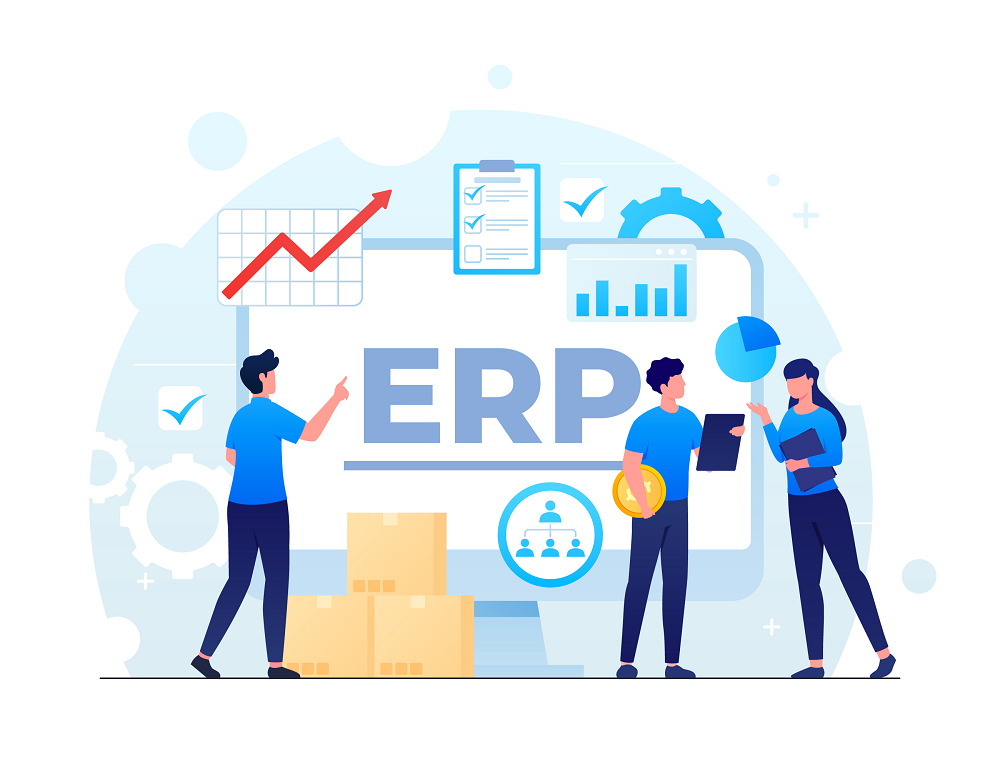
Negative Inventory: Causes, Effects, and Prevention
Negative inventory occurs when a company’s inventory records indicate that there is less inventory on hand than what should be available based on its sales and purchase transactions. In other words, negative inventory implies that the company is selling goods that it doesn’t actually have in stock. It is a situation where the inventory balance […]
Read More
A Guide to ERPs and Inventory Management Success
In today’s dynamic business environment, managing inventory effectively presents a significant challenge. Ensuring adequate stock levels to meet customer demand while avoiding costly overstocking necessitates a sophisticated approach. This is where Enterprise Resource Planning (ERP) systems emerge as a powerful tool for organizations seeking to optimize their inventory operations. This blog post delves into the […]
Read More
Understanding Beginning Inventory and Its Role in Accounting
Beginning inventory refers to the total value of inventory that a business has on hand at the beginning of a specific accounting period, such as a day, week, month, or year. This includes all of the products or materials that a business has purchased but not yet sold or used in production. The importance of […]
Read More
Purchase Requisitions: Best Practices and Challenges
A purchase requisition is a formal request made by an individual or department within an organization to the purchasing department or manager, requesting the procurement of goods or services needed for their work. It typically includes information such as the type and quantity of the item or service needed, the estimated cost, and the reason […]
Read More
Procurement Process: A Step-by-Step Guide
Procurement is the process of acquiring goods and services for a business. It involves identifying the need for a product or service, finding and evaluating potential suppliers, negotiating terms and conditions, and finalizing contracts upon agreement. Procurement is important to businesses because it can help them save money, improve efficiency, and maintain a quality product. […]
Read More
Supplies vs. Inventory: What’s the Difference?
Supplies are items that are used to run the daily operations of a business. They are not necessarily a component of the finished products that are sold to customers, but they play an essential role in the business function. Examples of supplies include paper, labels, boxes, pens, computers, and software. Inventory refers to the raw […]
Read More
Assets vs. Inventory: Understanding the Difference
Assets refer to all the resources that a company owns or controls that can provide future economic benefits. These resources can be tangible or intangible, and they are reported on the company’s balance sheet. Inventory, on the other hand, refers specifically to the goods a company has on hand that it intends to sell in […]
Read More
RFID vs. Barcode: Choosing the Right Technology for Inventory Management
RFID (Radio Frequency Identification) and barcode technologies are both used for tracking and managing inventory, but they work in different ways. A barcode is a series of vertical lines of varying widths and spaces that represent numbers or letters. Barcodes are scanned with a barcode scanner, which reads the code and translates it into a […]
Read More
How to Keep Track of Expenses and Profit?
As a business owner, keeping track of your expenses and profit is essential to understand your financial performance and make informed decisions about your business. Properly tracking your finances can help you identify areas for improvement, stay compliant with tax laws and regulations, and avoid cash flow problems. In this article, we will discuss the […]
Read More
How Do Small Businesses Organize Their Inventory?
Inventory management is a critical aspect of running a successful small business. Properly organizing inventory can help businesses optimize operations, reduce waste, and improve profitability. However, for many small business owners, inventory management can be a daunting task. In this article, we will explore how small businesses can effectively organize their inventory using a variety […]
Read More